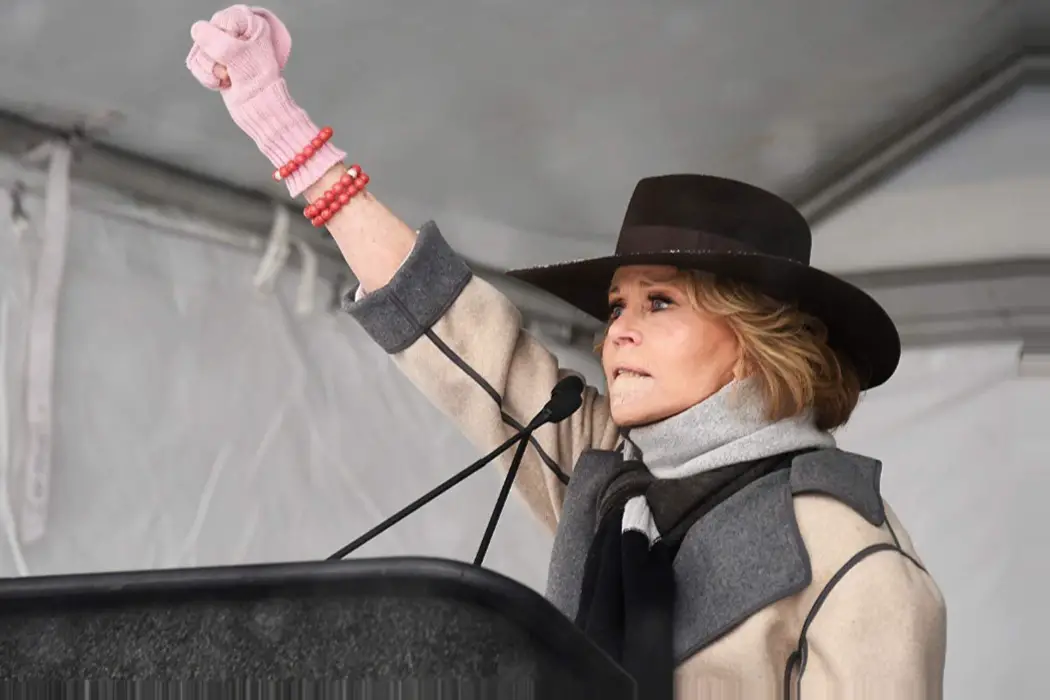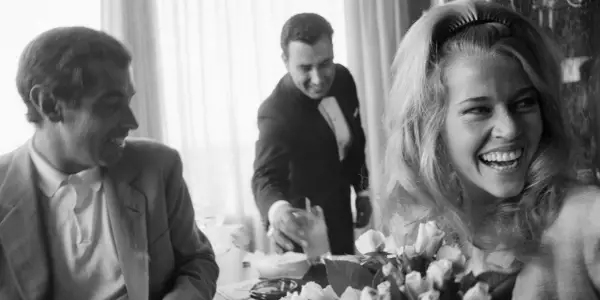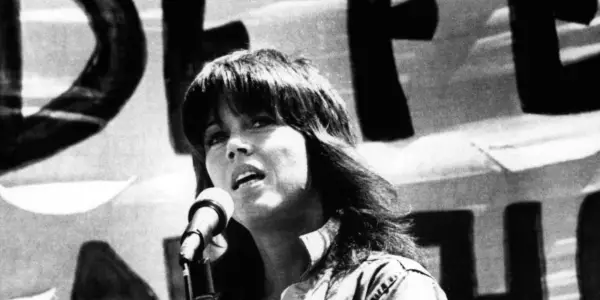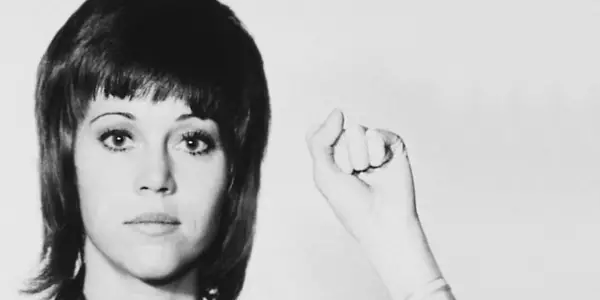JANE FONDA IN FIVE ACTS: A Fascinating Character Study

It took me a while to discover the wonderful world…
In her eighty years on the planet, Jane Fonda has been through a lot. The suicide of her mother. Her father’s fame and perennial absence. Three husbands. Being the most hated woman in America during her ‘Hanoi Jane’ phase. Constant media scrutiny of her every move, her every decision.
It’s that last item which makes Jane Fonda In Five Acts such a compelling documentary. At every stage of Fonda‘s life, she has been on camera. Susan Lacy‘s film compiles all of that footage, pairs it with commentary from the woman herself, and creates a fascinating character study.
Men
Known today as a feminist icon, Fonda is very honest here in acknowledging that for most of her life, she has relied on men to give her approval and reassurance.
The titular five acts are all named after the person who most defined Fonda‘s life during that era. First there is her father, Henry. Then her three husbands, Roger Vadim, Tom Hayden and Ted Turner. In her fifth act, Fonda started defining her own life. As she admits in the documentary, it took her more than sixty years to get there.
Out of the four men who have dominated her existence, the one who had the biggest negative affect was Henry Fonda. The problems between father and daughter have been well documented; she blames him for her mother’s suicide and her own eating disorder, he could never seem to understand how her activist liberal politics divulged so wildly from his middle-of-the-road variety. Jane Fonda In Five Acts doesn’t offer any new information on the feud, but seeing it contextualised against the background of Fonda‘s whole life does illustrate just how big a role Fonda Sr. had in shaping the outlook of his daughter.

Her husbands have been almost comically different. Her first, the rakish French director Roger Vadim, was largely responsible for her early screen persona as a sex kitten, best exemplified by Barbarella. The documentary skips coyly past their more outré sexual exploits (if you’re interested in those, Karina Longworth‘s excellent You Must Remember This podcast is anything but coy), but it’s safe to say that the man who also had relationships with Brigitte Bardot and Catherine Deneuve was something of a lothario.
If her second husband only had one thing on his mind, however, it was protest. Tom Hayden helped shepherd Jane towards her lifelong love of activism, and her move towards more serious films like They Shoot Horses Don’t They? Klute, and Coming Home. Their marriage lasted the longest of Fonda‘s three; the year after they divorced, she tied the knot with billionaire media mogul Ted Turner.
One of the film’s most poignant scenes occurs when Fonda pays Turner, from whom she is now divorced, a visit at his ranch in Montana. The two are still close, and Turner wishes they could be closer; he admits that he thinks their divorce was a mistake. Though the presence of a camera crew makes their meeting a little awkward, it’s clear there is a wealth of feeling going on under the surface.
After her separation from Turner, Fonda finally felt able to stand on her own. Speaking today, with the bulk of her life behind her, she seems sanguine about her previous insecurities, relieved that those difficulties are in the past, but grateful for all the support she’s had along the way. She’s at last comfortable in her own skin, and that’s lovely to see.
Mistakes, I’ve Made A Few…
Jane Fonda In Five Acts benefits greatly from having Fonda as narrator. It’s true that her involvement means that the documentary isn’t impartial, and that enables her to gloss over some elements of her life that an intrepid documentarian would relish exploring. But who better to discuss Jane Fonda than Jane Fonda?
She appears eager to sit down and consider her life, and that includes the mistakes she has made, and her regrets. One of those which has affected her the most greatly is her relationship with daughter Vanessa, the child she had with Roger Vadim. Vanessa was born as Fonda‘s activism was hitting its stride, and as such, she was a frequently absent parent. There’s an obvious parallel here with her own childhood, and her own absent parent. Whilst they appear to have made amends now, their relationship was difficult for many years, a fact that remains painful for Jane. Vanessa Vadim is the only one of her children to not appear in this movie.

Her most famous regrets relate to her activism in Vietnam; although she very explicitly does not regret everything. The film recognises the important work she did there in bringing the world’s attention to the US government’s diabolical tactics, including plans to bomb dikes that could have resulted in the deaths of more than a million people. Despite her efforts making her reviled by grand swathes of the population, she is rightly proud of all she did to raise awareness.
Still, there were the photos. The photos that showed her astride a North Vietnamese anti-aircraft gun, appearing to mime shooting down American aircrafts and laughing. Those are the photos that caught fire in the media, that propelled investigations into her activities by Congress and the FBI. The photos that caused people to label her treasonous, to simulate her execution in large, poisonous rallies.
She’s been open over her regret about those photos ever since, and she restates this in Jane Fonda In Five Acts. She admits to feeling out of her depth, struggling with parenthood, eating disorders, and an addiction to Dexedrine. She was led to the anti-aircraft gun for a photo op, and didn’t realise how it would look until it was too late. Jane Fonda cannot make her mistakes in private.

Looking back on this time from nearly a half a century in the future, she’s clear-eyed about her actions; why she did what she did, what she regrets and what she doesn’t. Fonda extends herself compassion without excusing her missteps. If Jane Fonda In Five Acts had a subtitle, it could very well have been ‘With The Benefit Of Hindsight…’ .
Jane Fonda In Five Acts: Conclusion
Jane Fonda has lived a long, full life, and she’s still going strong. She’s grappled with addiction, eating disorders, and being the most reviled woman in America. She’s been an activist, a sex symbol, and a businesswoman. And along the way, she’s even found the time to make movies!
Jane Fonda In Five Acts is made with obvious admiration, yet the documentary acknowledges the errors she has made along the way. More than anything else, this a film that celebrates change and transformation; the power that comes from our ability to learn from our mistakes and to grow. Like the woman at the centre of it all, it’s inspirational.
Have you seen Jane Fonda In Five Acts? What did you think?
Jane Fonda In Five Acts was broadcast in the US on HBO on September 24th, and will be released theatrically on September 28th. For further release information, click here.
Does content like this matter to you?
Become a Member and support film journalism. Unlock access to all of Film Inquiry`s great articles. Join a community of like-minded readers who are passionate about cinema - get access to our private members Network, give back to independent filmmakers, and more.
It took me a while to discover the wonderful world of cinema, but once I did, everything just fell into place.













